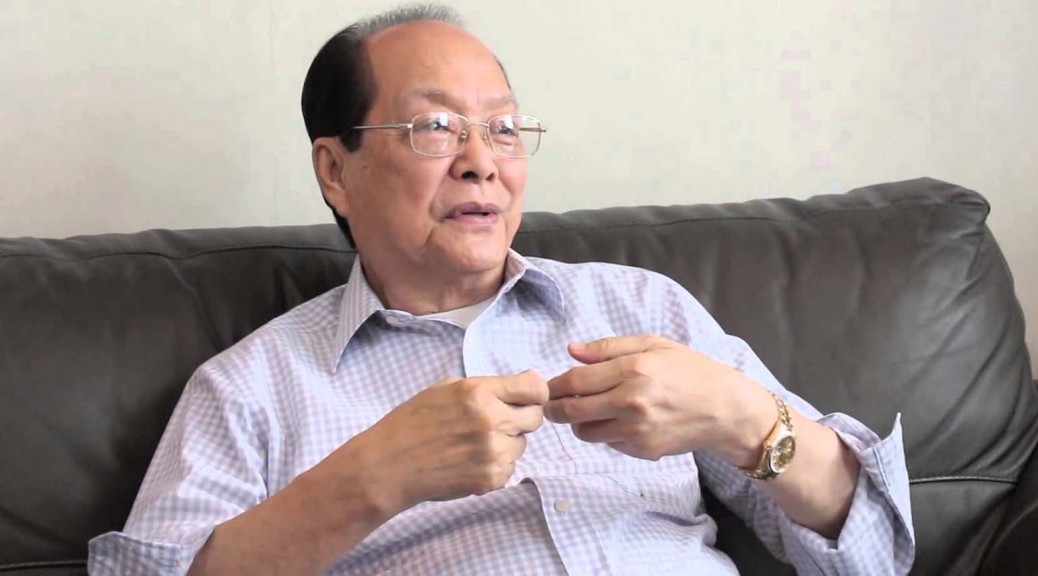
The Little-known Property Rights of the Legal Wife vs. That of the Other Woman
Sometimes people just have too much love to give that one person is not enough to receive it all!
…and of course that’s just a joke. 😀 People may have all sorts of reasons, but the effects of these decisions on their property relations will all be the same under the law. That is what we are going to talk about today – the property rights of the wife as compared to that of the other woman.
Although the title of this post implies that it’s the men’s team which is usually guilty of it, this also goes to the women’s side all the same. You know, these days women have also been catching up to it and perhaps getting even with their men.
Whether it’s the man or the woman who contracts an extra-marital affair, the law doesn’t really care. Loosely speaking, for the most part, the law does not favor any particular gender when it comes to property relations between a man and his wife. I’m referring to the rights of each party on whatever property they have accumulated through their work or efforts.
The 4 Types of Property Relations They Don’t Teach in School
In our laws, these are more properly called “property regimes”. And in the Family Code, there are these 4 types that have been covered:
- The System of Absolute Community
- The Conjugal Partnership of Gains
- Complete Separation of Property
- Property Regime of Unions Without Marriage
If you stop to think about it for a while, it can be amazing how so many people go through life without even hearing about these things.
Most of us eventually get married at some point in our lives. When we do, one of these property regimes applies to us and will govern our individual rights over the things, the properties that we accumulate over time through our hard work. This includes real estate, cars, jewelries, and everything else valuable.
So today, we’ll discuss the relevant details of each of these property regimes in relation to the rights of the legal wife (or husband) and to the rights of the “other” woman (or man).
For brevity, I’ll be using only “the legal wife” and “the other woman” in the following. But just take note that this applies vice versa, for the men also.
Knowing When and How these Property Regimes Apply May Save You From a Lifelong Mistake
August 3, 1988 was the day the Family Code of the Philippines took effect. Since that day, the default property regime that will govern couples when they get married, is the Absolute Community of Property. That is if they don’t agree on another regime prior to getting married. This agreement prior to the wedding is called the Marriage Settlements.
Before August 3, 1988, those couples who got married without executing a marriage settlements beforehand, are governed by the Conjugal Partnership of Gains regime.
The Complete Separation of Property regime only applies if the husband and wife agreed to it in their marriage settlements, which they have to execute prior to the wedding. They cannot execute this after the wedding already.
The Property Regime of Unions Without Marriage applies to two kinds of couples living together without being married:
- Those who are legally capable of getting married, and
- Those who cannot legally get married because of some legal impediment or incapacity of either or both of them
Although these two are governed by the same property regime, there are different rules for each one of them. The relationship between a man and his “other woman” falls under the second kind. This is because under our general law, a man can only marry one woman. If he is already married to one and their marriage is still in effect, he cannot marry his “other woman” as well. This is an example of a legal impediment I’m referring to, above.
However, just because “the other woman” cannot be legally married by her partner, doesn’t always mean that she totally doesn’t have any right whatsoever on the properties that she and her man have accumulated together. The law apparently gives some consideration to her rights also.
So now that you know what property regime applies to you, we can now move on to knowing how each of these regimes work.
The following are some overview of what each of these property regimes are about. But please note that there’s still a lot of technicalities to each one of them that I cannot cover here.
-
Absolute Community of Property
The general and overly simplified concept of ACP is that all the possessions of the husband and the wife are pooled together into one common fund, including those they already own prior to the marriage. And both of them have equal rights to everything in this common fund.
Both of them having equal rights to everything, consequently means that if they have to go separate ways and dissolve their marriage, they will also equally divide the community fund into two.
It will not matter if one of them brought a farm worth P100 million into the marriage while the other only brought a motorbike worth P100 thousand. If they enter into marriage after August 3, 1988 and they did not execute a marriage settlements stipulating otherwise, the ACP regime applies to them. And when they have to separate, both of them will get equal shares of the total of their Community Fund.
If you’ve heard someone say “an easy way to get rich is to marry a rich person”, it cannot be exactly true unless the property regime applied in the marriage is ACP! So be wise if you’re still single and you want to take this route in getting rich. 😀
-
Conjugal Partnership of Gains
The CPG is very much similar to ACP. The only big difference is that the properties already owned by each party before the marriage, will continue to be their own exclusive properties during the marriage (after the wedding). However, everything that those exclusive properties produce during the marriage, will go to the common fund, or the “Conjugal Property”, of the spouses in which they have equal rights.
For example, before the wedding, the husband already owns 5 rental apartment complexes. After the wedding, those apartments will continue to be his own exclusive properties. But the rental income from those, will go to the common fund of the spouses and the wife will have an equal share in that income.
Also, under the CPG, everything else that they earn, make or acquire during the marriage, will be added to the common fund just like with the ACP.
-
Complete Separation of Property
From the term itself, you can get the idea that this means each one of the spouses owns his/her exclusive properties. This refers to both present and future property, including those that they already own prior to the marriage.
If the spouses choose this property regime, they will only have to contribute to the common fund for supporting their family. The contribution of each will be commensurate to their income capacity.
-
Property Regime of Unions Without Marriage
For those couples who are perfectly capable of getting married, but for some reason did not actually get married, their property relations work a lot like that in CPG. Their possessions prior to the marriage stay exclusive to them. But whatever they produce or acquire during the marriage, will be equally shared by both of them.
For those couples where one party or both of them have legal impediments to marry, each one will keep his own property prior to the marriage. Each one will also keep his own earnings and anything he or she exclusively acquires during their cohabitation. Only those properties which they acquire together, by their joint efforts will be commonly owned by both of them. But they will not necessarily have equal shares in those properties. Their share is only proportionate to the actual contribution they made in acquiring those properties.
When the Other Woman Comes Into the Scene
Let’s say the husband does something stupid (because yeah, it’s usually the husband! 😀 ) and started an affair with another woman while he is still validly married to his wife — no annulment of marriage yet. If the man and his other woman live together and/or acquire properties, their property relations will fall under the second type of the Property Regime of Unions Without Marriage.
And here’s how the rights of the legal wife compare with the rights of the other woman when it comes to the properties:
-
In Absolute Community of Property:
Legal Wife Other Woman As to the Community Property of the husband and the wife Equal share with the husband no right at all As to the income and fruits produced by the community property Equal share with the husband no right at all As to the property jointly acquired by the husband and the other woman The share of the husband in the property will be included in the common fund in which the wife has an equal share. The share of the other woman is only up to the extent of her contribution in acquiring the property As to the income and fruits of the property jointly acquired by the husband and the other woman The share of the husband will go to the common fund in which the wife has an equal share. The share of the other woman is only up to the extent of her contribution in acquiring the property. As to the salaries, wages and other earnings of the husband Equal share with the husband no right at all -
In Conjugal Partnership of Gains:
Legal Wife Other Woman As to the Conjugal Property of the husband and the wife Equal share with the husband no right at all As to the income and fruits produced by the Conjugal Property Equal share with the husband no right at all As to the property jointly acquired by the husband and the other woman The share of the husband in the property will go to the conjugal fund in which the wife has an equal share. The share of the other woman is only up to the extent of her contribution in acquiring the property As to the income and fruits of the property jointly acquired by the husband and the other woman The share of the husband will go to the conjugal fund in which the wife has an equal share. The share of the other woman is only up to the extent of her contribution in acquiring the property. As to the salaries, wages and other earnings of the husband Equal share with the husband no right at all -
In Complete Separation of Property:
Legal Wife Other Woman As to the Common Property of the husband and the wife Equal share with the husband no right at all As to the income and fruits produced by the Common Property Equal share with the husband no right at all As to the Exclusive Property of the husband no right at all no right at all As to the income and fruits produced by the Exclusive Property of the husband no right at all no right at all As to the property jointly acquired by the husband and the other woman no right at all The share of the other woman is only up to the extent of her contribution in acquiring the property As to the income and fruits of the property jointly acquired by the husband and the other woman no right at all The share of the other woman is only up to the extent of her contribution in acquiring the property. As to the salaries, wages and other earnings of the husband no right at all no right at all
(Source: Title IV of The Family Code)
Parting Reminder
Many people today get into complicated marital relations without minding the implications of their actions on their properties. It will serve us well if we keep in mind that the personal relations we establish as we go through life, will have significant effects on the properties and the wealth that we accumulate.
Knowing the legal effects, implications and consequences of our own acts will help us make better decisions.
So you better bookmark this page if you already have amassed some wealth and you know you have a tendency to have too much love to give!
You might also want to share this post to that friend of yours whom you know is likely to get into complicated relationships. 🙂
Wanna start building your wealth in real estate? Our brokerage and property management services go very well together for that.
Or check out our full list of service offerings:
See how we can help you today →
Feature image credit: Viva Films (A Secret Affair)
-
Bhe Wowie
-
Nimrod Flores
-
-
Maj
-
Nimrod Flores
-
-
Ellaine Salonga-Tiopianco
-
EhL














